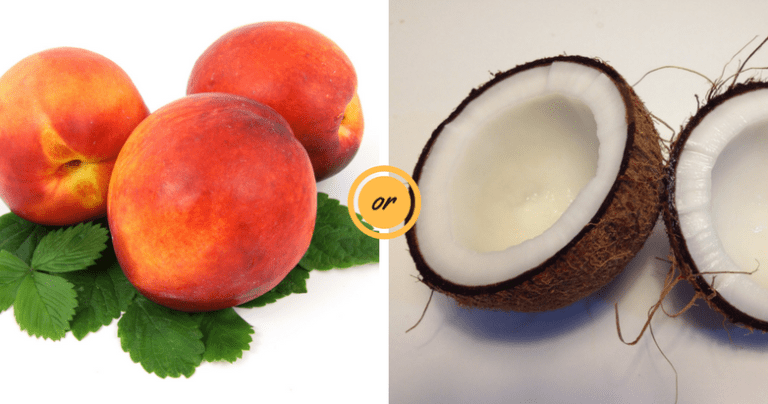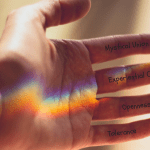
Even though co-dependency is a term that is closely associated with alcoholism, it has been known to afflict people in all circumstances.
Co-dependency essentially revolves around the sentence: “I am not enough.”
A co-dependent person will always need another person to validate their worth, their feelings, and their ideas—even their existence.
This need expresses itself in one of two ways. Either as a need to manipulate and control surroundings, or, as a need to bend over backward to make other people feel good—the reason being that “I can’t feel good if you don’t feel good.”
Co-dependency is a limiting part of the psyche and it affects everything from the ability to establish a healthy relationship to interactions with people in general. It can become a major obstacle in life.
A Question That Changed My Perspective
“Would you rather be a peach or a coconut?”
It was my teacher and mentor, Yogi Shanti Desai, who asked me this question many years ago.
Allow me to explain his premise.
A peach is beautiful on the outside, luscious and attractive, but bruises easily and is extremely hard on the inside. A person who is like a peach is always trying to look good and be good but is at the same time getting harder on the inside, constantly feeling more bitter and guilty.
Telltale sentences include the classic: “I do everything for everyone else, why doesn’t anyone do anything for me?”
It’s easy to become hard on the inside if you’re waiting for the world to repay your kindness quid pro quo.
There are many peaches in conventional caretaker industries, such as nurses, teachers, kindergarten teachers, social workers, and the affliction has been widespread among yoga teachers (I was one of the peaches).
Those afflicted by co-dependency are generally good people trying to make a difference, but, unfortunately, many of them have put on a mask of gentleness to try to please everyone they meet, which is simply impossible.
The coconut is different. It is hard and uninviting on the outside but, once you get past that hard shell, you find yourself in a haven of superb nourishment. A person that is more like a coconut may not bend over backward to make sure everyone she meets likes her, but the people she lets through her shell are bathed with same love and attention that she nourishes herself with on the inside. The coconut is a reservoir.
Now ask yourself:
“Would I rather be a peach or a coconut?”
Personally, I have chosen to be more like a coconut. If you meet me, you’ll notice that I am little rough around the edges. But once I let you past my boundaries, you will find a caring reservoir that I can easily share.
A Simple Mantra for Change
Of course, you don’t recover from co-dependency overnight. In fact, you may never fully recover. The goal is simply to build more acceptable boundaries and engage in self-care. We are all a blend of the peach and the coconut. It’s not a choice between black and white.
The one sentence that has helped me maintain my coconut status (most of the time) is:
“I’m not going to like everyone, not everyone’s going to like me, and that’s okay.”
It has been my mantra for years.
(Note, that not liking a person does not give me permission to be rude, it simply frees me from an incessant need to try to like everyone and get everyone to like me.)
If you are like most people, you’ll be quick to agree that you’re not going to like everyone you meet. It stands to reason. You’re not going to hit it off with every person that crosses your path. And you’re probably fine with that.
On the flip side, most people have a harder time accepting that not everyone will like them.
“But I am such a likable person,” they exclaim.
Sadly, no matter how likable a person is, there’s always someone who isn’t going to like them. Accepting this truth makes life much easier.
From then on, it’s just a matter of reminding oneself repeatedly that this perfectly okay, that it’s normal and natural.
“I’m not going to like everyone, not everyone’s going to like me, and that’s okay.”
Truly, it is okay.
Gudjon Bergmann
Author & Interfaith Minister
If you are a yoga teacher and relate to this article, you might be interested in Create a Safe Space: An Inspirational Guidebook for Yoga Teachers who want to Further Serve their Students
Pictures: Pexels.com CC0 License
















